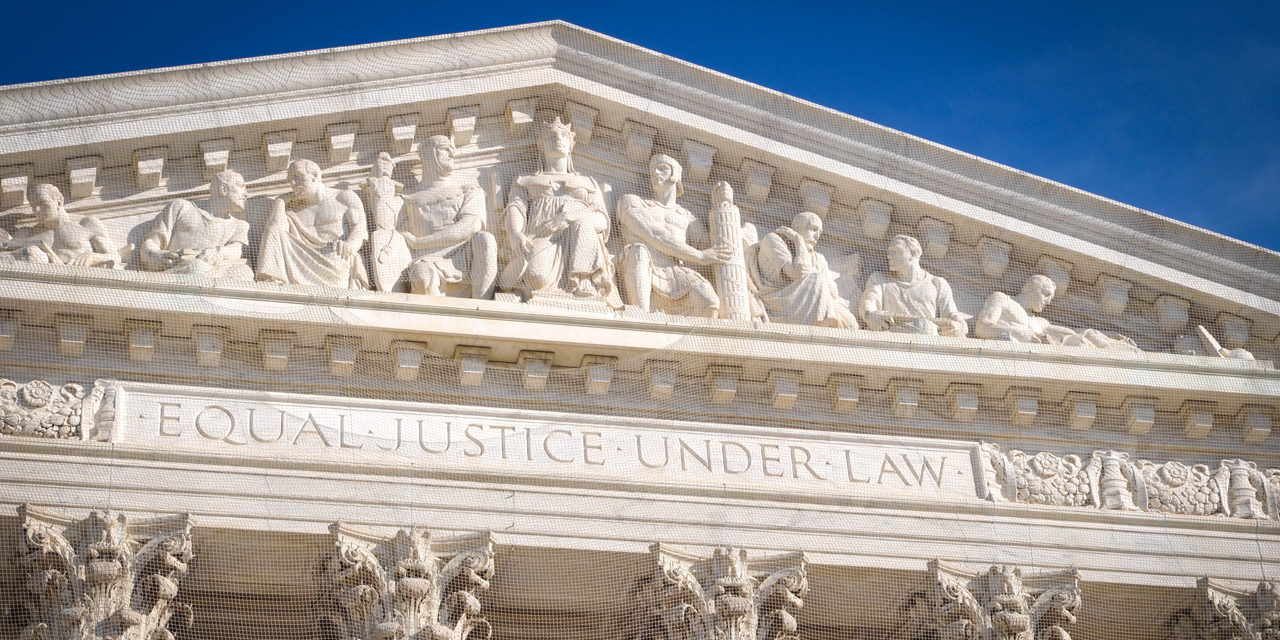In a 5-3 decision on Monday, the Supreme Court sided with the Republican-controlled Wisconsin State Legislature and gave a green light to a Wisconsin law which requires citizens who are voting via absentee ballot to return it by Election Day.
Previously, a federal district judge had declared the law unconstitutional and ordered the state to accept absentee ballots that arrived six days after Election Day as long as those ballots were postmarked by Election Day, in contravention to state law. Following the Supreme Court’s decision, Wisconsin will now only accept absentee ballots returned on or before Election Day.
For those who wish to know the results of the election on Election Night, rather than days or weeks later, this decision is a victory.
The case originated after the Democratic National Party filed a lawsuit in a federal district court arguing that the federal judge should order the state to extend its election deadline due to the COVID-19 pandemic.
The Seventh Circuit Court of Appeals halted the district court’s order and stayed the decision, thereby restoring the Election Day deadline.
In this decision, the Supreme Court declined to reverse the Seventh Circuit, thereby permitting the Wisconsin state law to stand.
This case revealed an interesting rift between Chief Justice John Roberts, and the two newly appointed conservative justices, Neil Gorsuch and Brett Kavanaugh.
The chief justice wrote a one-page concurring opinion arguing that federal courts should not interfere with state election laws so close to an election. On the other hand, Chief Justice Roberts believes a state court can interfere in its state’s election law
This occurred last week when, in a 4-4 vote, the Supreme Court allowed a lower state court ruling to stand that required Pennsylvania to count absentee ballots received three days after Election Day, even if they aren’t postmarked.
With Justice Amy Coney Barrett now on the court, the Pennsylvania Republican Party has asked the Supreme Court to reconsider its decision.
“While the Pennsylvania applications implicated the authority of state courts to apply their own constitutions to election regulations, this case involves federal intrusion on state lawmaking processes,” the chief justice wrote in his brief concurrence regarding the Wisconsin decision.
“Different bodies of law and different precedents govern these two situations and require, in these particular circumstances, that we allow the modification of election rules in Pennsylvania but not Wisconsin.”
Justices Gorsuch and Kavanaugh believe both federal and state courts should refuse to insert themselves in adjudicating disputes regarding election laws so close to an election.
“Weeks before a national election, a federal district judge decreed that Wisconsin law violates the Constitution by requiring absentee voters to return their ballots no later than Election Day,” Justice Gorsuch wrote in his concurrence which Justice Kavanaugh joined.
“The judge in this case tacked six days onto the state’s election deadline, but what about three or seven or 10, and what’s to stop different judges choosing (as they surely would) different deadlines in different jurisdictions? A widely shared state policy seeking to make election day real would give way to a Babel of decrees. And what’s to stop courts from tinkering with in-person voting rules too?
“The Constitution dictates a different approach to these how-much-is-enough questions. The Constitution provides that state legislatures—not federal judges, not state judges, not state governors, not other state officials—bear primary responsibility for setting election rules.”
The three justices from the liberal bloc, Justices Kagan, Breyer and Sotomayor dissented from the court’s decision. Justice Kagan wrote the dissent and argued that all Wisconsin voters deserve to have their votes heard:
“Tens of thousands of Wisconsinites, through no fault of their own, may receive their mail ballots too late to return them by Election Day. Without the district court’s order, they must opt between ‘brav[ing] the polls,’ with all the risk that entails, and ‘los[ing] their right to vote.’
The voters of Wisconsin deserve a better choice.”
With Justice Amy Coney Barrett now on the court and a newly cemented conservative majority, we will see if the Supreme Court switches direction in Pennsylvania and, like Wisconsin, reverses judges who disturb election laws just days prior to Election Day.
The case is Democratic National Committee v. Wisconsin State Legislature.
You can follow this author on Twitter @MettlerZachary
Photo from Shutterstock
Visit our Election 2020 page






